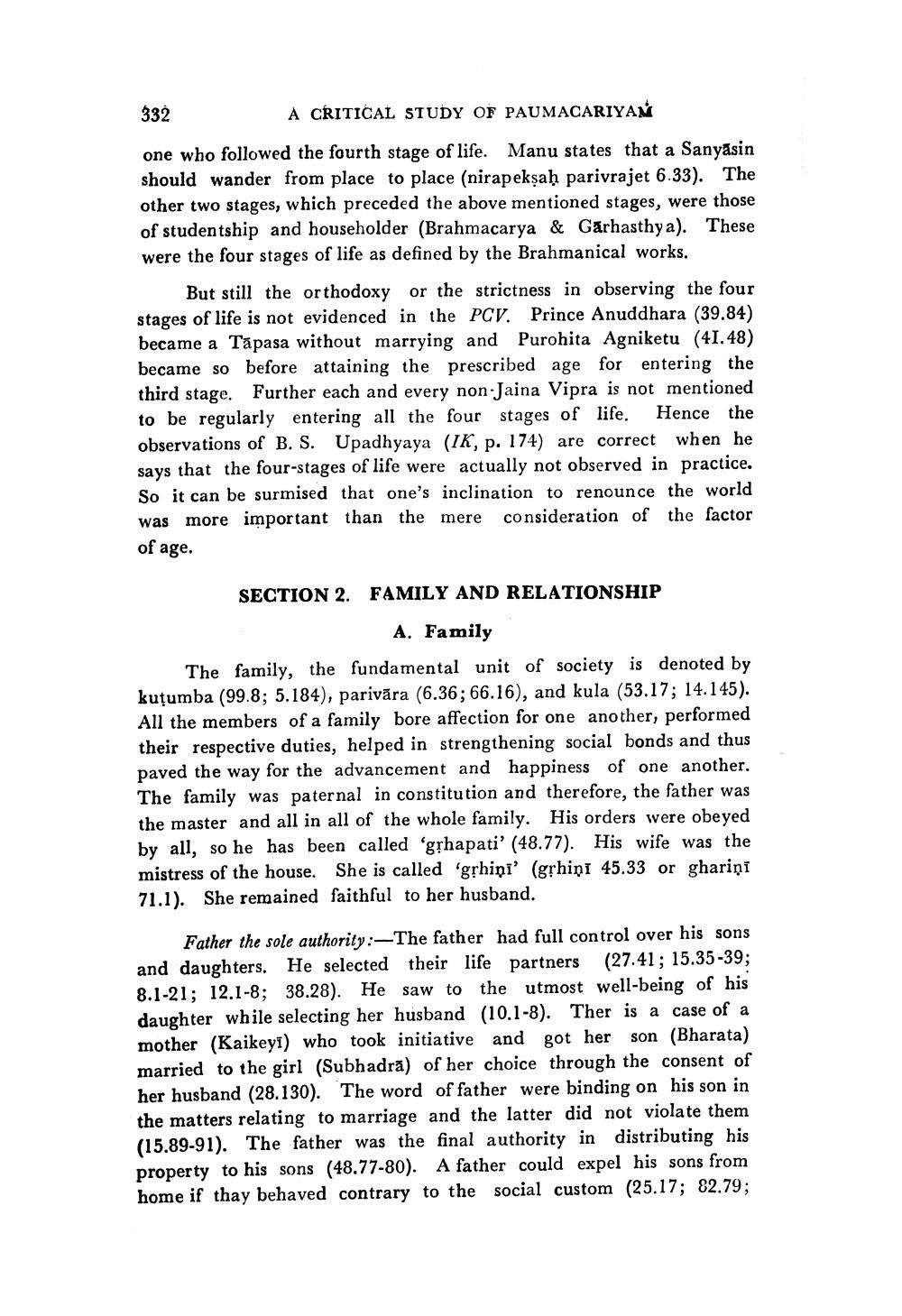________________
332
A CRITICAL STUDY OF PAUMACARIYAM
one who followed the fourth stage of life. Manu states that a Sanyasin should wander from place to place (nirapeksaḥ parivrajet 6.33). The other two stages, which preceded the above mentioned stages, were those of studentship and householder (Brahmacarya & Garhasthya). These were the four stages of life as defined by the Brahmanical works.
But still the orthodoxy or the strictness in observing the four stages of life is not evidenced in the PCV. Prince Anuddhara (39.84) became a Tāpasa without marrying and Purohita Agniketu (41.48) became so before attaining the prescribed age for entering the third stage. Further each and every non-Jaina Vipra is not mentioned to be regularly entering all the four stages of life. Hence the observations of B.S. Upadhyaya (IK, p. 174) are correct when he says that the four-stages of life were actually not observed in practice. So it can be surmised that one's inclination to renounce the world was more important than the mere consideration of the factor of age.
SECTION 2. FAMILY AND RELATIONSHIP
A. Family The family, the fundamental unit of society is denoted by kuțumba (99.8; 5.184), parivāra (6.36; 66.16), and kula (53.17; 14.145). All the members of a family bore affection for one another, performed their respective duties, helped in strengthening social bonds and thus paved the way for the advancement and happiness of one another. The family was paternal in constitution and therefore, the father was the master and all in all of the whole family. His orders were obeyed by all, so he has been called 'grhapati' (48.77). His wife was the mistress of the house. She is called 'gļhini' (gļhiņi 45.33 or ghariņi 71.1). She remained faithful to her husband.
Father the sole authority:-The father had full control over his sons and daughters. He selected their life partners (27.41; 15.35-39; 8.1-21; 12.1-8; 38.28). He saw to the utmost well-being of his daughter while selecting her husband (10.1-8). Ther is a case of a mother (Kaikeyi) who took initiative and got her son (Bharata) married to the girl (Subhadra) of her choice through the consent of her husband (28.130). The word of father were binding on his son in the matters relating to marriage and the latter did not violate them (15.89-91). The father was the final authority in distributing his property to his sons (48.77-80). A father could expel his sons from home if thay behaved contrary to the social custom (25.17; 82.79;




